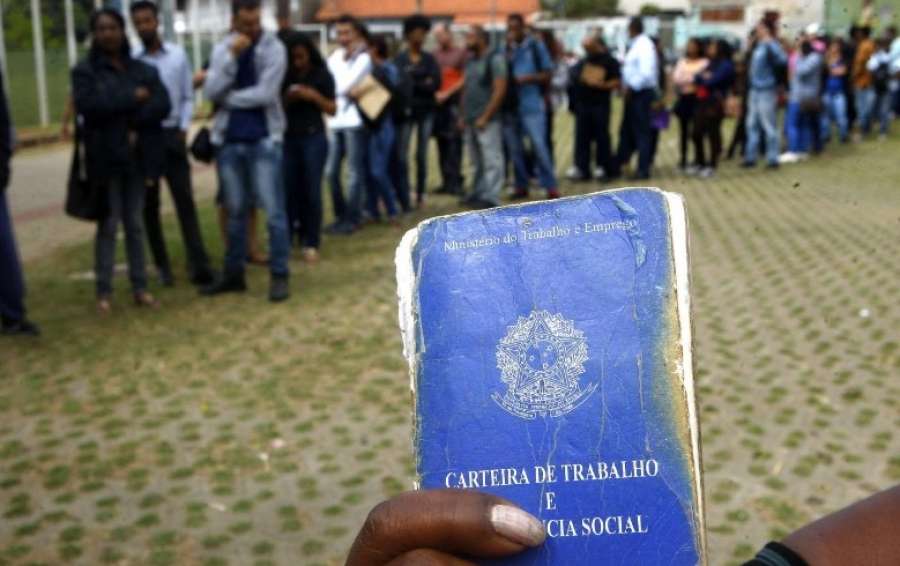By a commentator for Tjen Folket Media.
Bourgeois journalists can see poverty in third world countries like Brazil, but they can’t see the connection between poverty there and wealth here. Marxism reveals that the source of wealth is the masses’ poverty. The state of the economy in Brazil can be traced back to the first months under Jair Bolsonaro’s military-dominated government.
NRK’s Arnt Stefansen is in Brazil and writes in a correspondence letter home:
I’m thinking of everything that could have been different if Brazil’s poor could have had the same opportunities as us Norwegians. If they had had opportunities for good education, a decent job, and a stable income. Then thousands of great youth would not have had to take whatever job offers came their way: to sell drugs for gangs.
He also writes:
Brazil is one of those countries in the world where there are the greatest differences between rich and poor. Between the popular tourist area of Copacabana and Ipanema and the closest slums lie only a few hundred meters – one of the sharpest poverty lines on the planet.
For the last 15 years that I have lived in Brazil, there has been nothing that has made me more upset and mournful than this injustice.
Tjen Folket Media has earlier written about Norsk Hydro’s activities in Brazil. NRK has written about it as well, but the bourgeois media doesn’t make the essential connection between Brazil’s poverty and the wealth of Western countries.
When NRK’s journalists speculate about what might happen if Brazil’s people were to have the «same opportunities» as one has in Norway, it is as an expression of the bourgeois metaphysics where one refuses to see wealth and poverty as connected phenomena. Wealth comes from poverty. Karl Marx revealed that the capitalists’ profits find their source in surplus value. Surplus value is created by surplus labor, primarily undertaken by the world’s poorest proletariat.
Wealth and «opportunities» in Norway come in large degrees from the exploitation of the world’s poorest. Norway is a rich country because other countries are poor. Brazil is a concrete example of this. Norsk Hydro, partially owned by the Norwegian state, makes tremendous sums of money because they can exploit Brazil’s land and people. This is how Norwegian capital grows, and along with it «Norwegian opportunities».
The new democratic newspaper A nova democracia writes on June 1, 2019:
The gross national product (GNP) between January and March 2019 amounted to a resounding fiasco for the Bolsonaro government under the umbrella of the Armed Forces High Command (ACFA). There is an estimated reduction of 0.2% compared with last quarter’s index released on 30 May by the Brazilian Institute for Geography and Statistics (IBGE). It is the first downturn since the fourth quarter of 2016, when the economy fell by 0.6% in the midst of a crisis.
The newspaper also writes regularly about the masses’ protests against the state, the government, and imperialism.
For the third world, there is no hope for development under capitalism. The so-called developments in these countries only means that the large companies from imperialist countries will exploit resources and people more mercilessly. This can mean more money in the pockets of corrupt elites and a small middle class, but for the deepest and broadest masses, it only means more poverty, more suffering, more need, and steadily higher risks for hunger and death.
Imperialism also destroys nature and the basis for life in these countries, the way Norsk Hydro contributes to the pollution of the Amazon, the «world’s green lungs». For the masses of the world, and for the planet’s environment, it is only revolution that will create a bright future.
Kjære leser!
Tjen Folket Media trenger din støtte. Vi får selvsagt ingen pressestøtte eller noen hjelp fra rike kapitalister slik som rasistiske “alternative medier”. All vår støtte kommer fra våre lesere og fra den revolusjonære bevegelsen. Vi er dypt takknemlige for dette. Vi overlever ikke uten, og du kan gjøre ditt bidrag ved å støtte oss med det du kan avse.
